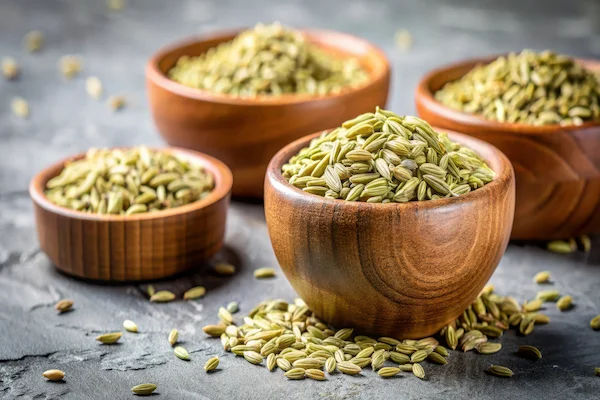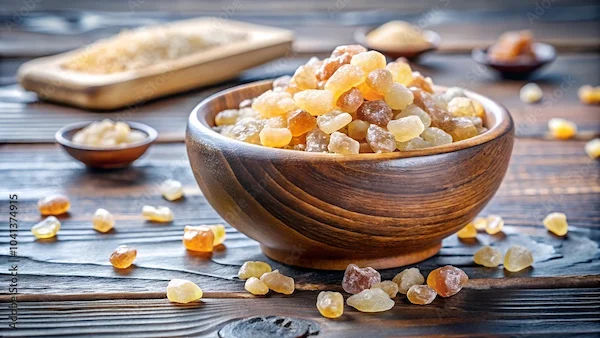Paneer in Ayurveda Health Benefits, Uses, and Side Effects
Discover paneer benefits in Ayurveda—vegetarian protein, uses, and side effects. Learn safe portions, cooking tips, and who should avoid it.

Written by Dr. Mohammed Kamran
Reviewed by Dr. Shaik Abdul Kalam MD (Physician)
Last updated on 12th Feb, 2026

Introduction:
Paneer is a fresh, soft cheese widely used in Indian cooking. For many families—especially those who are vegetarian—it’s a go-to ingredient for quick, satisfying meals. People often ask about paneer benefits, whether it’s a good vegetarian protein, and how it fits within ayurvedic foods. This matters because dairy can be nourishing for many, yet it may not suit everyone, and the way you cook and eat paneer affects its health.
In this guide, you’ll find an easy-to-understand, balanced look at paneer from both modern nutrition and Ayurvedic perspectives. You’ll learn practical ways to use paneer well, who should be careful, and what side effects to watch for—so you can make confident, informed choices for your health.
What is paneer?
Paneer is a fresh cheese made by curdling hot milk with an acid (like lemon juice or vinegar) and then pressing the curds. Unlike aged cheeses, paneer is not fermented or ripened, so it has a mild taste and a firm, crumbly texture that doesn’t melt. It’s commonly sautéed, grilled, or added to curries, salads, wraps, and bowls.
How does it compare to similar foods?
• Paneer vs. tofu: Tofu is made from soybeans and is plant-based. Paneer is dairy-based. Both are versatile protein options; tofu generally contains more unsaturated fat and is naturally lactose-free.
• Paneer vs. cottage cheese: Cottage cheese is curdled milk with some whey retained; it’s usually soft and spoonable, sometimes higher in sodium, and can be lower in fat if you choose low-fat options. Paneer is firmer and typically used in cooked dishes.
Paneer benefits: What the evidence-based nutrition says
From a modern nutrition standpoint, paneer can be a nutritious addition to a balanced diet, especially for people seeking a convenient vegetarian protein. While exact nutrition varies by recipe and brand, cheese generally provides:
• Protein to support muscle maintenance and repair
• Calcium for bone and teeth health
• Phosphorus and other minerals
• Vitamin B12 (a nutrient often harder to get in strict vegetarian diets)
• Fat (including saturated fat), which means portion size matters
Consult a Top General Physician
Key paneer benefits when used wisely:
• A practical vegetarian protein: Protein contributes to fullness and helps reduce overeating when combined with fiber-rich foods. If you rely on meatless meals, paneer can help you meet daily protein needs alongside beans, lentils, tofu, nuts, and seeds.
• Bone-friendly nutrients: Dairy is a well-known source of calcium, an essential mineral for bone health across the lifespan. Strong bones also require vitamin D, regular physical activity (especially weight-bearing exercise), and a balanced intake of protein and other minerals.
• Meal satisfaction and blood sugar steadiness: Pairing paneer with vegetables and whole grains may help steady energy because protein can slow digestion and keep you feeling satisfied for longer compared with very low-protein meals.
• Culinary flexibility: Because paneer holds its shape when cooked, it’s easy to add to stir-fries, curries, wraps, and grills, making it simpler to build balanced, protein-containing plates.
A traditional lens: Paneer in Ayurveda (Ayurvedic foods perspective)
• Ayurveda, India’s traditional system of health, often classifies dairy as nourishing when used appropriately. In many Ayurvedic traditions and texts, dairy is considered grounding and supportive when fresh and prepared in a balanced meal. Within that context:
• Paneer is commonly viewed as nourishing and somewhat “heavy,” so it’s typically recommended in moderation and ideally eaten warm and freshly prepared.
• It is often combined with warming spices (like ginger, black pepper, cumin, turmeric) to support comfortable digestion.
• Individual constitution (dosha) matters in Ayurveda. Many practitioners suggest paneer may suit people with higher Vata or Pitta tendencies when cooked with spices, and may need to be limited in Kapha-dominant individuals who are prone to sluggish digestion or congestion.
Important note: Ayurvedic guidance is traditional and individualized; it is not the same as modern medical evidence. If you follow Ayurveda, consider consulting a qualified Ayurvedic practitioner for personalized advice, especially if you have medical conditions.
How much paneer is healthy? Portions and frequency
• Because paneer is calorie-dense and can be high in saturated fat, mindful portion sizes are wise.
• A practical portion is about 1–1.5 ounces (roughly 30–40 grams) of cheese at a time, depending on your overall calorie and protein needs.
• If you include dairy, many healthy eating patterns keep cheese intake modest and focus on balancing it with plenty of vegetables, whole grains, legumes, and healthy fats.
• Consider frequency. If you eat paneer several times a week, use lighter cooking methods (grilling, baking, sautéing with minimal oil), and fill at least half your plate with vegetables.
Making paneer a heart-friendlier choice:
• Choose cooking methods that use less oil (grill, bake, air-fry, quick sauté).
• Pair with high-fiber vegetables (spinach, broccoli, peppers, mushrooms) and whole grains (brown rice, quinoa, whole-wheat roti).
• Add beans or lentils to stretch portions while boosting fiber and plant protein.
• If available, look for reduced-fat paneer or use a slightly smaller portion of full-fat paneer.
Who should limit or avoid paneer?
Paneer works well for many people, but certain situations call for caution:
• Lactose intolerance: Paneer is generally lower in lactose than milk, but it is not lactose-free. Some people can tolerate small portions; others may experience gas, bloating, or diarrhea. If you’re sensitive, try a small amount, choose lactose-free dairy alternatives, or opt for naturally lactose-free proteins like tofu and legumes.
• Milk allergy: This is an immune reaction and is different from lactose intolerance. People with milk allergies should avoid paneer entirely. If you suspect milk allergy, seek medical evaluation.
• Heart health considerations: Cheese contains saturated fat, which, when eaten in excess, can raise LDL (“bad”) cholesterol. If you have high cholesterol or heart disease risk, keep portions small, emphasize vegetables and whole grains, and discuss your overall saturated fat intake with your healthcare provider.
• High blood pressure: Some cheeses are high in sodium. Paneer made at home often contains less salt, but packaged products may include added sodium. If you monitor your sodium, read labels and keep portions moderate.
• Kidney concerns: If you have chronic kidney disease, your clinician may advise limits on protein, sodium, and phosphorus. Discuss paneer with your kidney care team.
• Pregnancy: Avoid paneer made from unpasteurized milk and ensure it’s cooked thoroughly to reduce the risk of foodborne illness.
Possible side effects and safety tips (what to watch for)
• Digestive symptoms: Gas, bloating, or cramps can occur in people sensitive to lactose. Trial smaller portions or switch to lactose-free options if needed.
• Allergic reactions: Hives, wheezing, vomiting, or anaphylaxis require urgent medical attention. People with known milk allergies should not consume paneer.
• Foodborne illness risk: Unpasteurized dairy can carry harmful bacteria (for example, Listeria). Always choose pasteurized milk and keep paneer properly refrigerated.
• Weight gain from excess calories: Paneer is energy-dense. Regular large portions—especially deep-fried or cooked in heavy cream—can increase calorie intake. Choose lighter cooking methods and mindful portions.
How to use paneer the healthy way? (modern and Ayurvedic-friendly tips)
Cooking methods that keep it lighter
• Grill or bake cubes and toss with sautéed vegetables.
• Quick sauté with minimal oil and plenty of spices.
• Crumble into tomato-onion “bhurji” with peas and peppers.
• Add to salads, grain bowls, and stuffed whole-wheat wraps.
Flavor pairings and spices often used in Ayurvedic foods
• Warming spices: ginger, cumin, coriander, black pepper, turmeric.
• Fresh herbs: cilantro, mint.
• Acid balance: lemon or tomato can brighten flavor and may make the dish feel lighter.
Smart combinations for a balanced plate
• Half plate of vegetables (spinach, cauliflower, bell peppers, mushrooms, tomatoes)
• One quarter whole grains (brown rice, millet, quinoa, whole-wheat roti)
• One-quarter protein (paneer or a mix of paneer and legumes)
• A drizzle of healthy fat (olive, mustard, sesame oil) if needed, in small amounts
Portion guidance in everyday meals
• Curry: Aim for about 1 -- 1.5 ounces pof aneer per serving, bulked up with vegetables.
• Stir-fry: Combine smaller amounts of paneer with tofu or chickpeas to reduce saturated fat while keeping protein high.
• Snacks: Skewer small cubes with cherry tomatoes and peppers; grill and serve with a squeeze of lemon.
Buying, storage, and food safety
• Choose pasteurized products: If you buy ready-made paneer, check the label for “pasteurized milk.”
• Refrigeration: Store at or below 4°C (40°F). Keep it sealed to prevent drying and contamination.
• Use promptly: Fresh paneer spoils quickly. Use within a few days of opening or making it at home.
• Reheat thoroughly: When reheating cooked paneer dishes, heat until steaming hot.
• Clean preparation: If making paneer at home, wash hands, use clean utensils, and cool the cheese quickly before refrigerating.
Paneer vs. other vegetarian protein options
Rotating your proteins supports better nutrition and helps you avoid overdoing saturated fat. Consider these:
• Tofu and tempeh: Plant-based, naturally cholesterol-free, and typically richer in unsaturated fats. Great for people with lactose intolerance.
• Lentils and beans: High in fiber and micronutrients; pair well with small amounts of paneer to stretch portions and reduce overall saturated fat.
• Yogurt (curd): If tolerated, provides protein and probiotics; choose plain, unsweetened varieties and watch the fat content.
• Nuts and seeds: Heart-healthy fats and plant protein; use in small amounts because they are calorie-dense.
Putting it together: A practical, balanced approach
• Enjoy paneer in moderation as part of a diverse diet rich in vegetables, whole grains, legumes, nuts, and seeds.
• If you follow Ayurvedic principles, cook paneer fresh, serve it warm, and use digestive spices. Adjust frequency and portion size based on how your body feels and your personal health goals.
• If you have lactose intolerance, a milk allergy, heart disease risk, high blood pressure, kidney issues, or are pregnant, take the precautions listed above and speak with your healthcare provider for personalized advice.
Consult a Top General Physician
Consult a Top General Physician

Dr. Rajib Ghose
General Physician/ Internal Medicine Specialist
25 Years • MBBS
East Midnapore
VIVEKANANDA SEBA SADAN, East Midnapore

Dr. Jawwad Mohammed Kaleem
General Practitioner
4 Years • MBBS
Hyderabad
Apollo 24|7 Clinic, Hyderabad

Dr. Mohammed Kamran
General Practitioner
5 Years • MBBS, FIDM
Nashik
Apollo 24|7 Clinic - Maharashtra, Nashik

Dr. Pinaki Mukhopadhyay
General Physician/ Internal Medicine Specialist
33 Years • MBBS
Kolkata
MCR SUPER SPECIALITY POLY CLINIC & PATHOLOGY, Kolkata
(25+ Patients)

Dr Aakash Andgi
General Physician/ Internal Medicine Specialist
9 Years • MBBS MD
Bengaluru
Apollo Clinic, JP nagar, Bengaluru
Consult a Top General Physician

Dr. Rajib Ghose
General Physician/ Internal Medicine Specialist
25 Years • MBBS
East Midnapore
VIVEKANANDA SEBA SADAN, East Midnapore

Dr. Jawwad Mohammed Kaleem
General Practitioner
4 Years • MBBS
Hyderabad
Apollo 24|7 Clinic, Hyderabad

Dr. Mohammed Kamran
General Practitioner
5 Years • MBBS, FIDM
Nashik
Apollo 24|7 Clinic - Maharashtra, Nashik

Dr. Pinaki Mukhopadhyay
General Physician/ Internal Medicine Specialist
33 Years • MBBS
Kolkata
MCR SUPER SPECIALITY POLY CLINIC & PATHOLOGY, Kolkata
(25+ Patients)

Dr Aakash Andgi
General Physician/ Internal Medicine Specialist
9 Years • MBBS MD
Bengaluru
Apollo Clinic, JP nagar, Bengaluru
More articles from General Medical Consultation
Frequently Asked Questions
1) Is paneer good for weight loss?
Paneer can fit into a weight-loss plan when portions are moderate and cooking methods are light. Protein helps you feel full, which may make it easier to manage calories. Keep portions around 1–1.5 ounces per meal, pack your plate with vegetables, choose whole grains, and avoid deep-frying or heavy cream sauces.
2) Can people with lactose intolerance eat paneer?
Sometimes, in small amounts. Paneer is generally lower in lactose than milk, but it still contains lactose. Tolerance varies widely. Try a small portion with a balanced meal, or choose lactose-free dairy products, tofu, or legumes if you’re sensitive. If symptoms persist, talk to a clinician.
3) Is paneer safe during pregnancy?
Yes—if it’s made from pasteurized milk and cooked thoroughly. Avoid paneer from unpasteurized milk and store all dairy properly to reduce the risk of foodborne illness. When dining out, ask whether the paneer is pasteurized and ensure dishes are served hot.
4) Paneer or tofu: Which is healthier?
Both can be healthy choices. Paneer offers protein and calcium but contains saturated fat. Tofu is plant-based, typically lower in saturated fat, and lactose-free. Many people benefit from using both paneer occasionally and tofu more often to balance nutrients and reduce saturated fat intake.
5) How much protein does paneer provide?
Protein in cheese varies by type and brand. Many cheeses provide roughly 6–7 grams of protein per 1 ounce (28 grams). Check the nutrition label on your paneer for the most accurate information, and consider your total daily protein needs.




